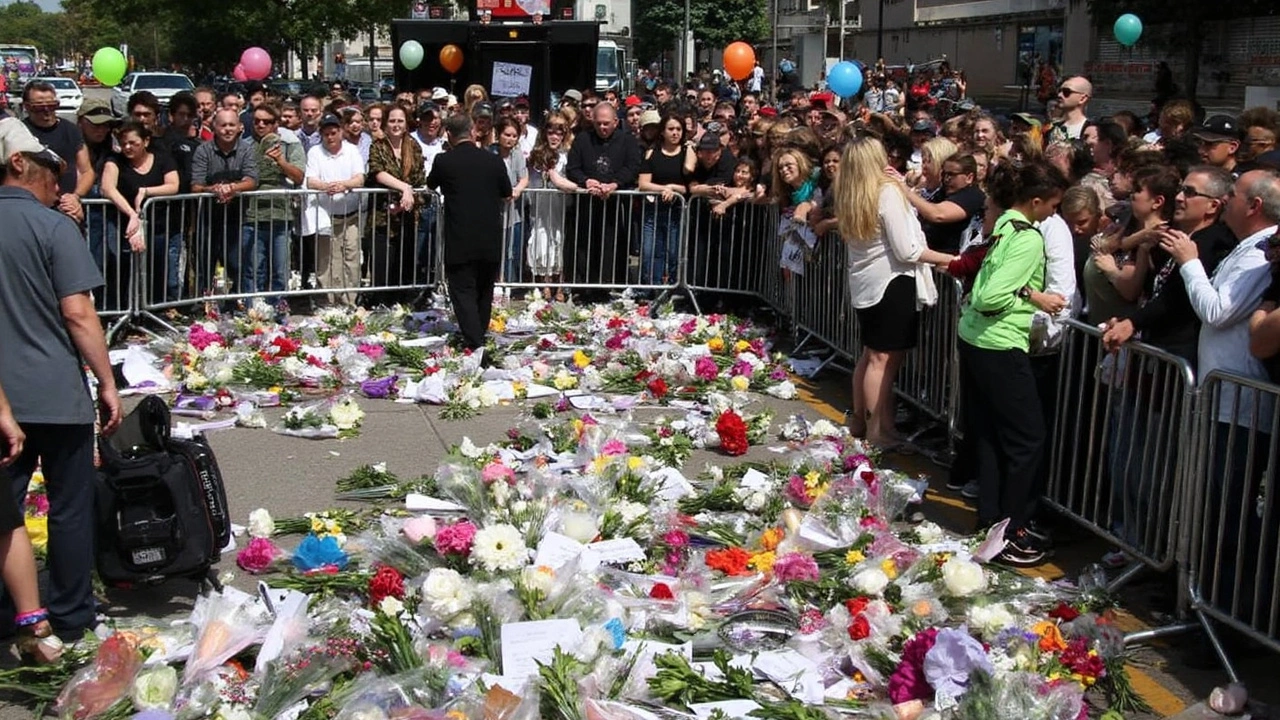Emotional Farewell as Thousands Pack Birmingham for Ozzy Osbourne Procession
Birmingham had never seen anything quite like this. On July 31, the city’s center pulsed with music, grief, and pride as tens of thousands gathered to honor Ozzy Osbourne—the heart and soul behind Black Sabbath—during his public funeral procession. Just nine days after his death at 76, fans arrived with flowers, handwritten messages, and mementos, determined to pay their respects before he was laid to rest.
The entire route was thick with emotion. People sang along to Osbourne’s classics, while others stood quietly, lost in memory. The cortege snaked through Birmingham, passing places that meant everything to Ozzy and his followers, like the Black Sabbath bench and Black Sabbath bridge on Broad Street. Crowds spilled onto the pavement, clutching tributes ranging from classic vinyls to unique keepsakes—someone even laid an Aston Villa football shirt marked with "Crazy Train," merging his love of sport and rock in one bold gesture.
It was about more than just celebrity. Birmingham’s Lord Mayor, Zafar Iqbal, took to the mic and called Osbourne a "son of Birmingham," highlighting the strong, lifelong bond between the heavy metal icon and the city that made him. Osbourne’s journey started in these same streets, where he and his Black Sabbath bandmates first rewrote the rules of rock almost fifty-five years ago. The city's communities—young fans in faded Sabbath shirts, older devotees clutching dog-eared records—stood side by side, proving Ozzy bridged generations as easily as guitar riffs.
As the procession paused at major landmarks, the outpouring intensified. People layered the Black Sabbath bridge with flowers and memorabilia, and notes with phrases like "Final Stop On The Crazy Train? But Metal Lives Forever." It was clear that for these fans, Ozzy wasn’t just a rock star—he was a symbol of resilience, creativity, and wild, unapologetic spirit.
Landmarks, Music, and a City in Mourning
The date added another layer of significance. Just weeks earlier, Ozzy had played what turned out to be a farewell show at Villa Park. The lineup featured Metallica, Guns N’ Roses, and Tom Morello. Few would have guessed it would be his last—yet the memory hung in the air, another bittersweet chord as the city said goodbye. The stories traded among the crowd—about concerts missed, songs that shaped hard times, wild tales of Ozzy’s antics—felt almost like an oral history of modern music.
Still, beneath the tears, there was a defiant edge: a belief echoed in graffiti and marker pen on banners—"Metal Lives Forever." The sheer size of the turnout, the palpable energy, and the creative tributes spoke to Ozzy’s reach. He took working-class Birmingham and hurled it onto the world stage, changing music forever in the process.
After the public procession, the Osbourne family retreated for a more intimate farewell. Yet, the city’s send-off rang out far louder than most. Fans lingered by the bridge and bench until nightfall, some quietly playing Sabbath riffs from portable speakers, others sharing laughter and stories, everyone united by one man’s outsized legacy. Birmingham gave its favorite son a send-off unlike any other—raw, heartfelt, unforgettable.
